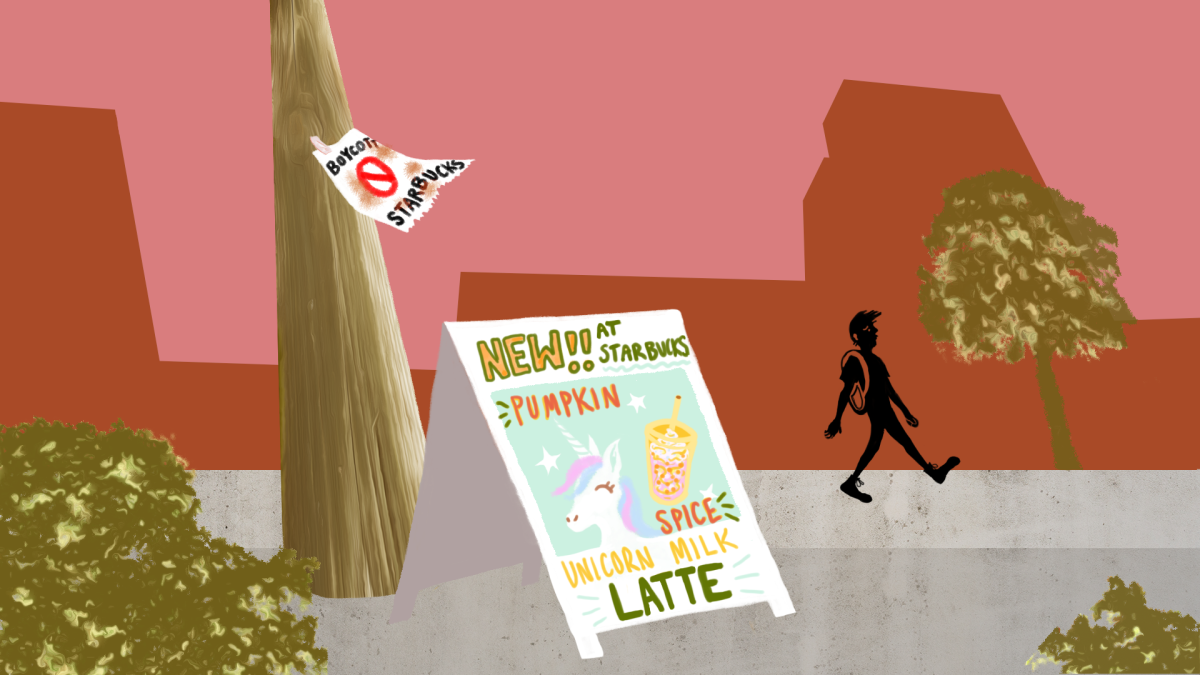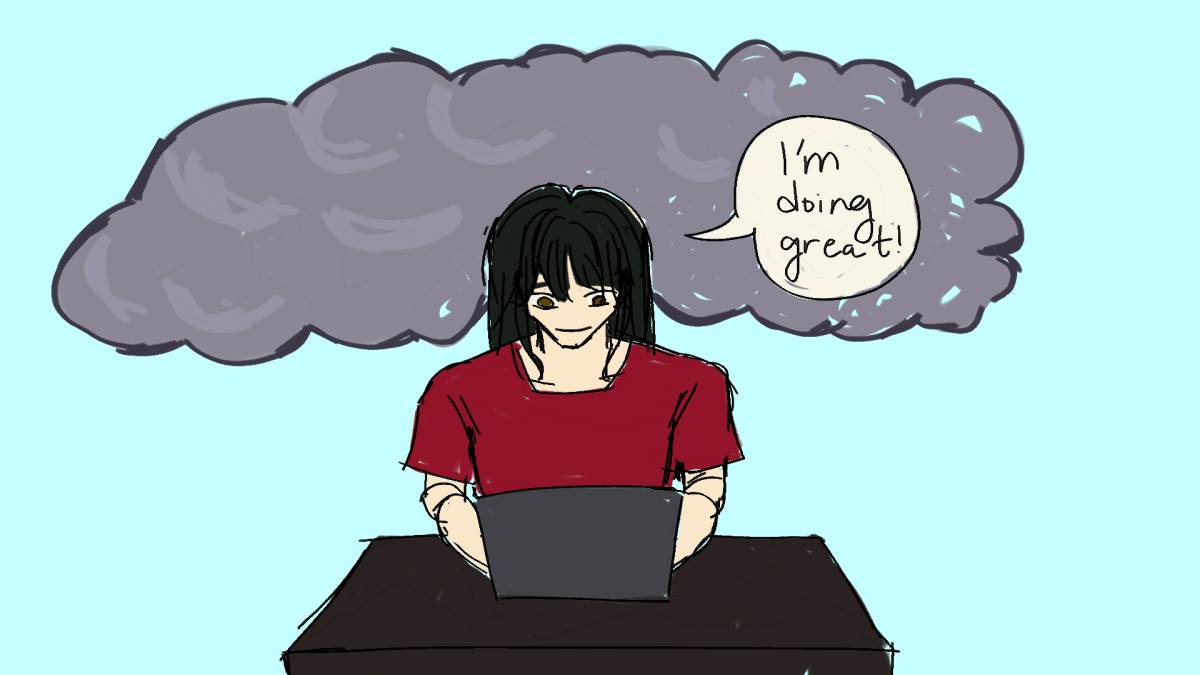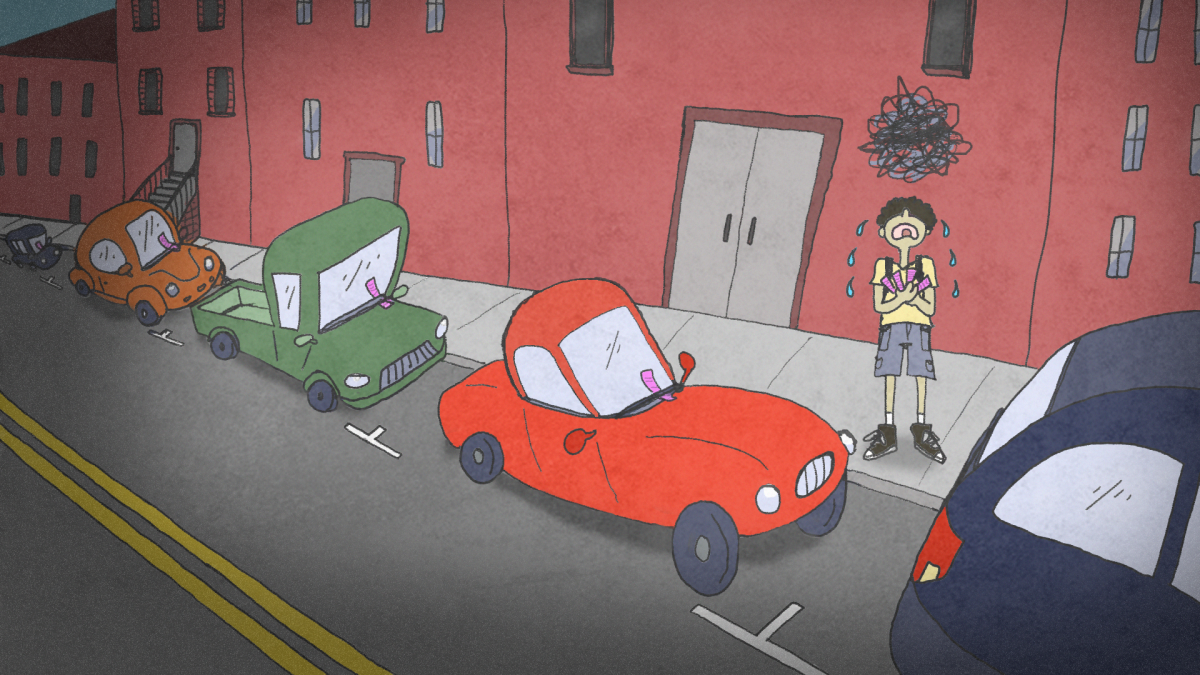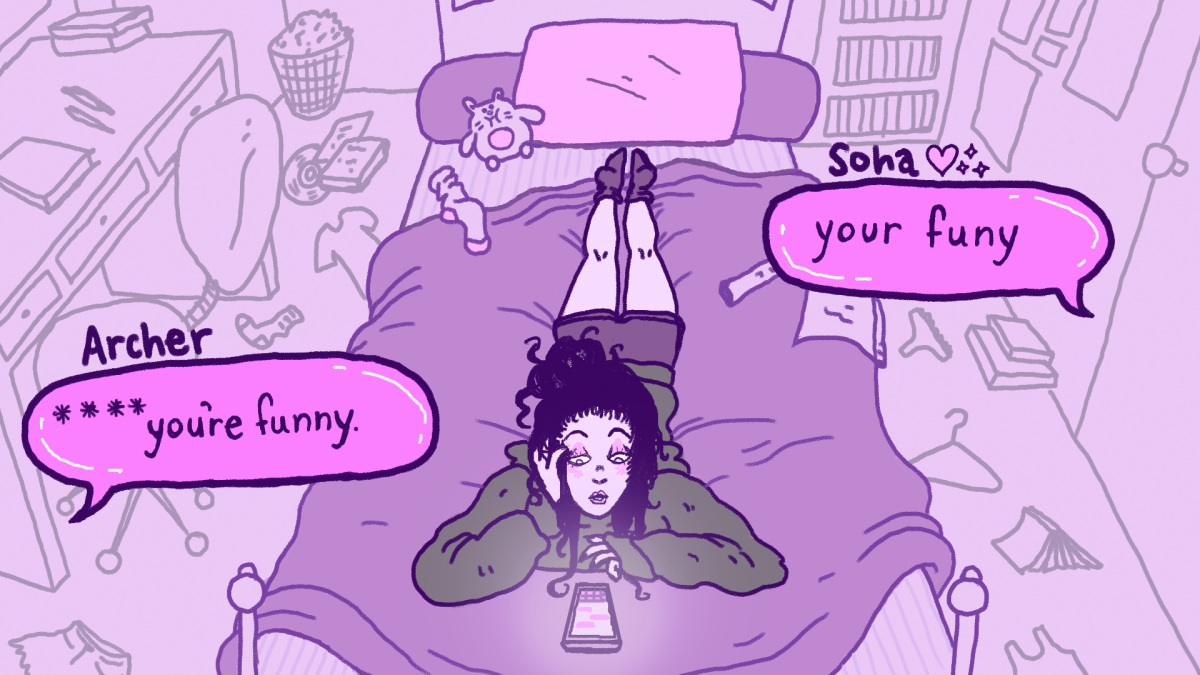Nothing kills a movement faster than convenience. Just ask whoever is next to you sipping a Starbucks Iced Pumpkin Spice Macchiato Latte with extra cold foam and apathy.
Back in Oct. 2023, just two days after violence once again broke out between Israel and Hamas, the Starbucks Workers United union posted on X, “Solidarity with Palestine!” Now, this was considered blasphemy, and within 40 minutes, the post was deleted. However the damage — or the momentum — had begun.
Corporate Starbucks immediately panicked. They declared that the union did not represent the company, then sued for trademark infringement, arguing that the pro-Palestinian post falsely tied Starbucks’ brand to political advocacy.
The backlash from consumers was incredible. Starbucks lost over $11 billion in market value from the boycott. Same-store sales fell 4% globally, 3% in the United States and a brutal 11% in China. For a brief, beautiful moment, it looked like consumer activism might actually hold a corporate giant accountable.
And then, predictably, we got distracted.
By December, Starbucks seemed to be on damage control. They rolled out limited-edition discounts and promotions. The hashtags urging people to reduce coffee consumption peaked in November 2023 and have since fizzled out.
The boycott didn’t end because Starbucks fixed its image, it ended because people decided their caffeine cravings were more important than their alleged convictions.
This is the cycle of performative activism. People get loud, hashtag and boycott — until it’s not convenient anymore. Then they scroll past images of starving children, re-form their comfortable bubbles and ignore the cries of those begging them to put down their coffee and actually care.
Naomi Taylor, a third-year studying political science and current Starbucks employee, said she supported the boycott wholeheartedly, even now.
“It’s not hard not to go to a company that supports genocide,” Taylor said. “People don’t see it as a big deal, but it’s just morally right and that should be all that matters.”
Yet even when people try to act on their convictions, the results can sometimes be underwhelming. Amazon is a good example of how consumer boycotts can fail. A week-long boycott in early March 2025 barely made a dent and U.S. sales rose about 5.9% compared to the eight-week average during that period.
Walmart experienced the same trend. In April 2025, a weeklong protest over its DEI rollback drew online attention. However, the company’s broad reach and careful communications strategy kept sales steady, showing that even highly publicized campaigns do not always change consumer behavior.
People talk big about morals and justice, but when it comes to following through consistently, convenience almost always wins. It’s easy to post online or make a statement when it costs nothing, but standing by your convictions and actually changing behavior requires effort many aren’t willing to give.
But some engagement is still better than none. Taylor drew a comparison to performativity seen within the Black Lives Matter movement, recalling how many dismissed online gestures of solidarity as meaningless.
“People said it wasn’t effective,” Taylor said. “But I remember when everybody posted a black screen or changed their profile picture to show support. Little things like that may not make a complete difference, but it shows you’re advocating for a cause. Yes, it will fizzle out, but it’s better than staying silent.”
Any act of protest, no matter how fleeting, matters more than silence. Social media outrage fades, hashtags disappear and people go back to old habits, but the initial signal can inspire those who are paying attention, even those who aren’t, and reminds corporations that there are customers who care, even if some act like a sugar-filled cup of unicorn coffee is their Kryptonite.
“Boycotts are effective, I don’t see why they wouldn’t be,” Taylor said. “They are the foundation for change. But the next step is who you elect, going to rallies, asking questions, doing your research. That’s how you see the bigger picture.”
On campus, boycotting isn’t abstract. Starbucks is at Talley Student Union and on Hillsborough Street, churning out overpriced drinks while students shuffle past, pretending their moral compass doesn’t hit them in the wallet. Every cup purchased is a reminder that convenience will win every single time.
Boycotts can work. They can actually hit corporations where it hurts. But only if we grow a spine, skip the drink and stop pretending online gestures are enough.
If NC State students, or any members of our community, want to see change, it’s time to put up or shut up. Brew coffee at home, support local cafés or pool together for fair-trade beans that actually align with your conscience. Your outrage isn’t real when it doesn’t cost you a thing. If an over-sweetened latte is all it takes to excuse moral laziness, maybe just stick to water.





